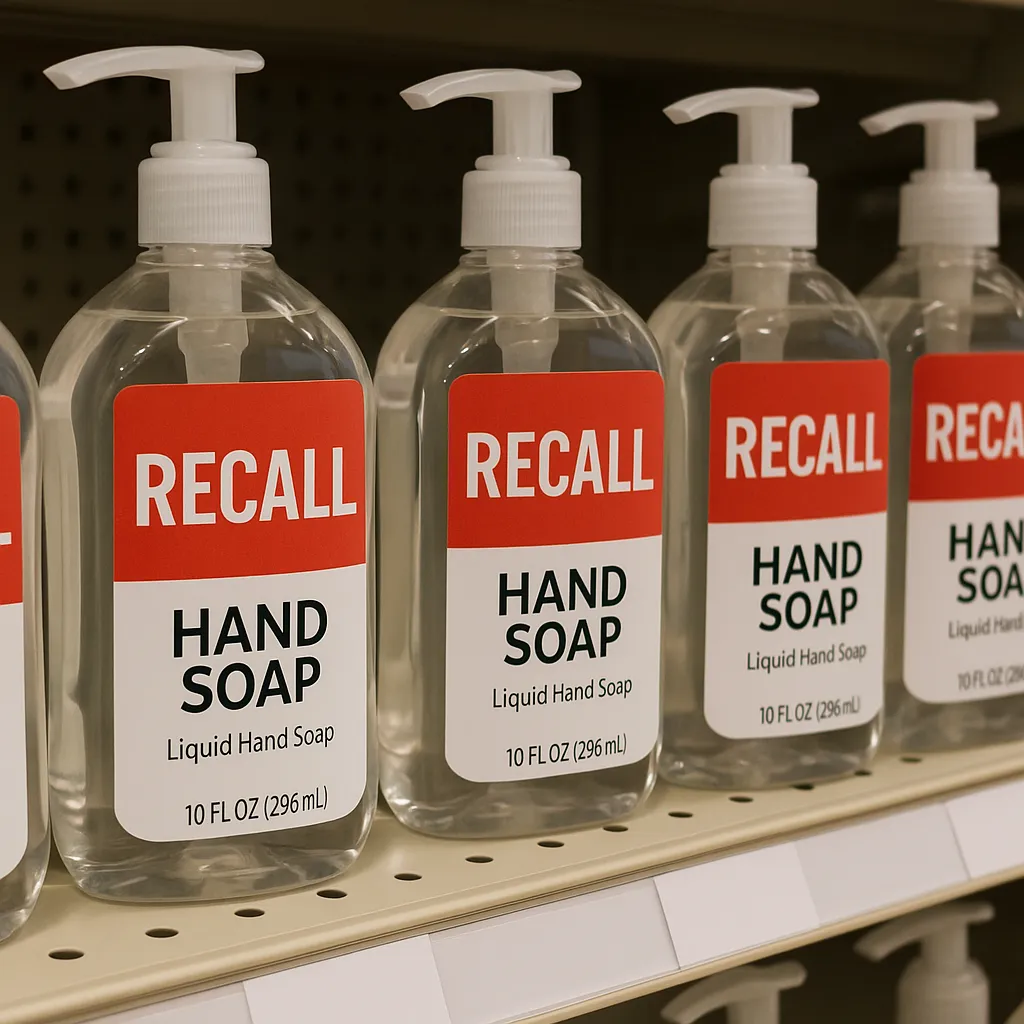DermaRite Recalls Over 20 Skincare Products Amid Sepsis Concerns

SAN ANTONIO (Sept. 11, 2025) - DermaRite Industries has expanded its voluntary recall of hand soaps and skincare items after detecting Burkholderia cepacia complex contamination that can cause life-threatening sepsis in vulnerable patients.
Nut Graf The New Jersey-based manufacturer first issued a limited hand soap recall on Aug. 8 and broadened the action to more than 20 products, including lotions, cleansers and sanitizers, after confirming microbial contamination. Healthcare facilities nationwide and in Puerto Rico have been urged to destroy affected inventory to prevent possible infections.
Key Details What’s Recalled?
- 3-N-1 Cleansing Foam
- 4-N-1 No-Rinse Wash Cream
- Chlorhexidine-free Clean-n-Free Rinse-Free Body Wash & Peri-cleanser
- Dermacerin Moisturizing Cream
- Dermakleen Antimicrobial Hand Soap
- Gel Rite Gel Hand Sanitizer
- KleenFoam Antimicrobial Foam Soap
- PeriGiene Antiseptic Cleanser (Perineal Use)
- Renew Full Body Wash & Shampoo
- San-E-Foam Hand Sanitizer …plus more than a dozen additional lotions, creams and sanitizers.
Why the Recall? Testing identified Burkholderia cepacia complex, a soil-borne bacterium that poses minimal risk to healthy people but can cause severe respiratory or bloodstream infections-especially in immunocompromised individuals-potentially leading to sepsis.
Where and Who’s Affected? All recalled items reached distributors, healthcare facilities and retailers across the United States and Puerto Rico. DermaRite has notified customers to inspect and destroy all affected lots immediately.
Company Response DermaRite warned that minor skin lesions in healthy users may become locally infected, while immunosuppressed patients face a high risk of systemic infection. To date, no adverse events have been reported. Consumers and facilities with questions can contact Mary Goldberg at 973-569-9000 ext. 104 or email [email protected].
Subhead: Next Steps for Consumers and Facilities
- Immediately stop using recalled products.
- Follow each facility’s standard procedures to dispose of affected inventory.
- Consult healthcare providers if infection symptoms develop after product use.
- Report any adverse reactions to FDA’s MedWatch program.
Categories
Autos and vehicles Beauty and fashion Business and finance Climate Entertainment Food and drink Games Health Hobbies and leisure Jobs and education Law and government Other Politics Science Shopping Sports Technology Travel and transportationRecent Posts
Tags
Archives
08/19/2025 (3) 08/20/2025 (40) 08/21/2025 (27) 08/22/2025 (22) 08/23/2025 (4) 08/24/2025 (21) 08/25/2025 (30) 08/26/2025 (24) 08/27/2025 (29) 08/28/2025 (16) 08/29/2025 (9) 08/30/2025 (13) 08/31/2025 (17) 09/01/2025 (167) 09/02/2025 (124) 09/03/2025 (149) 09/04/2025 (112) 09/05/2025 (72) 09/06/2025 (169) 09/07/2025 (162) 09/08/2025 (150) 09/09/2025 (176) 09/10/2025 (194) 09/11/2025 (194) 09/12/2025 (186) 09/13/2025 (207) 09/14/2025 (159) 09/15/2025 (175) 09/16/2025 (198) 09/17/2025 (196) 09/18/2025 (196) 09/19/2025 (207) 09/20/2025 (129) 09/21/2025 (4)